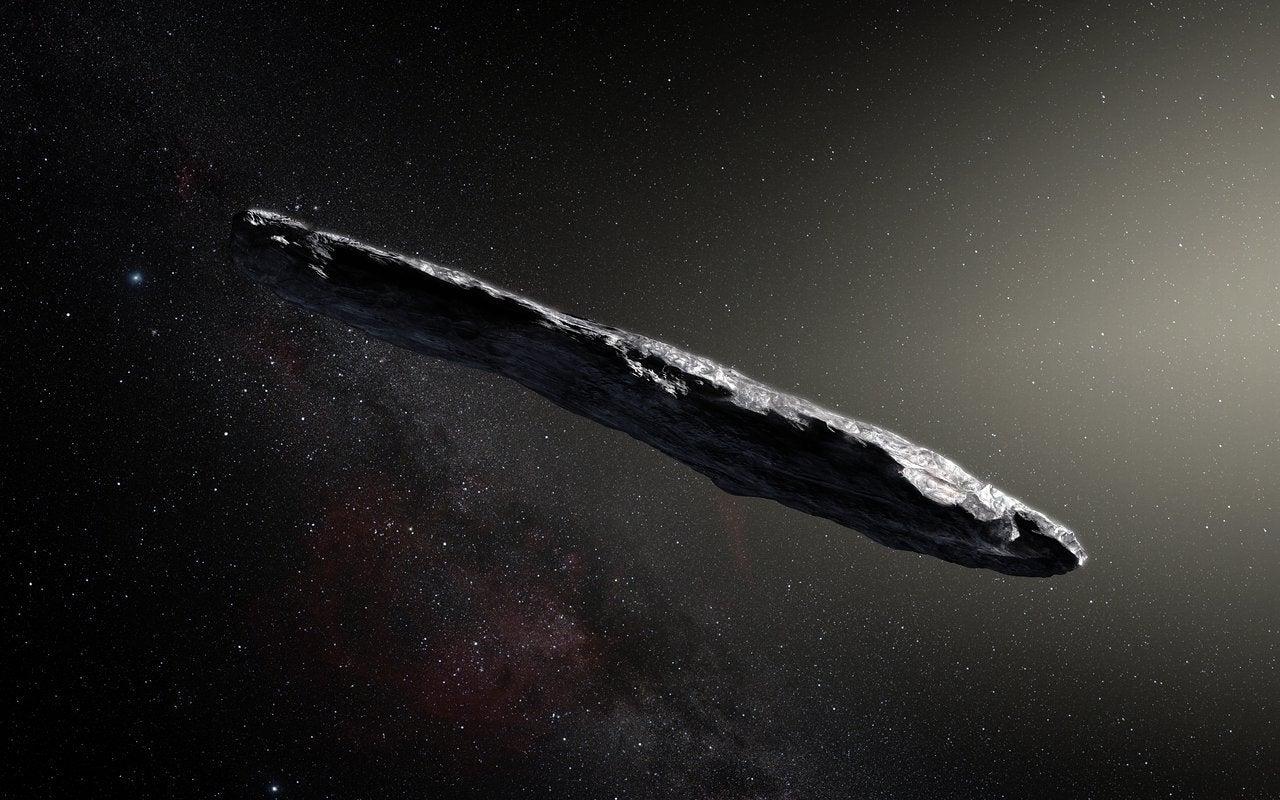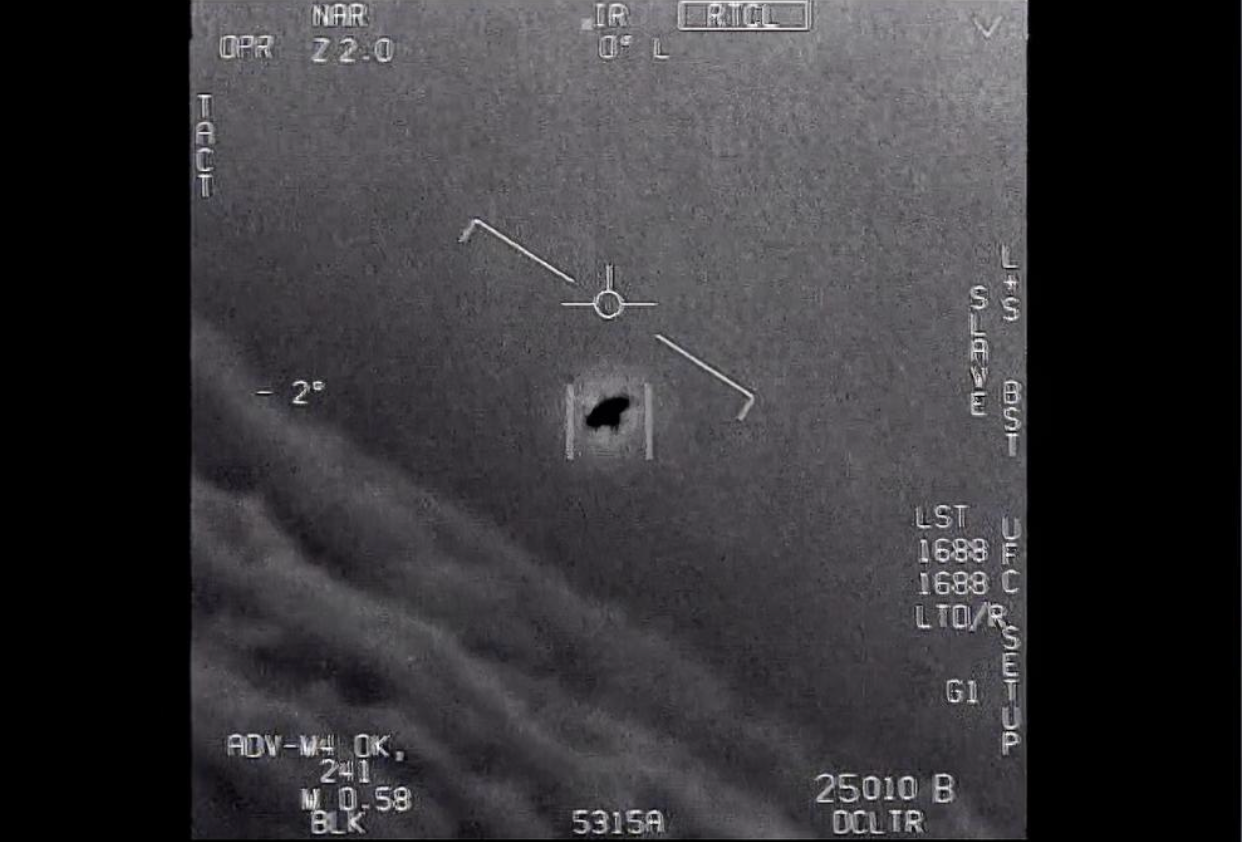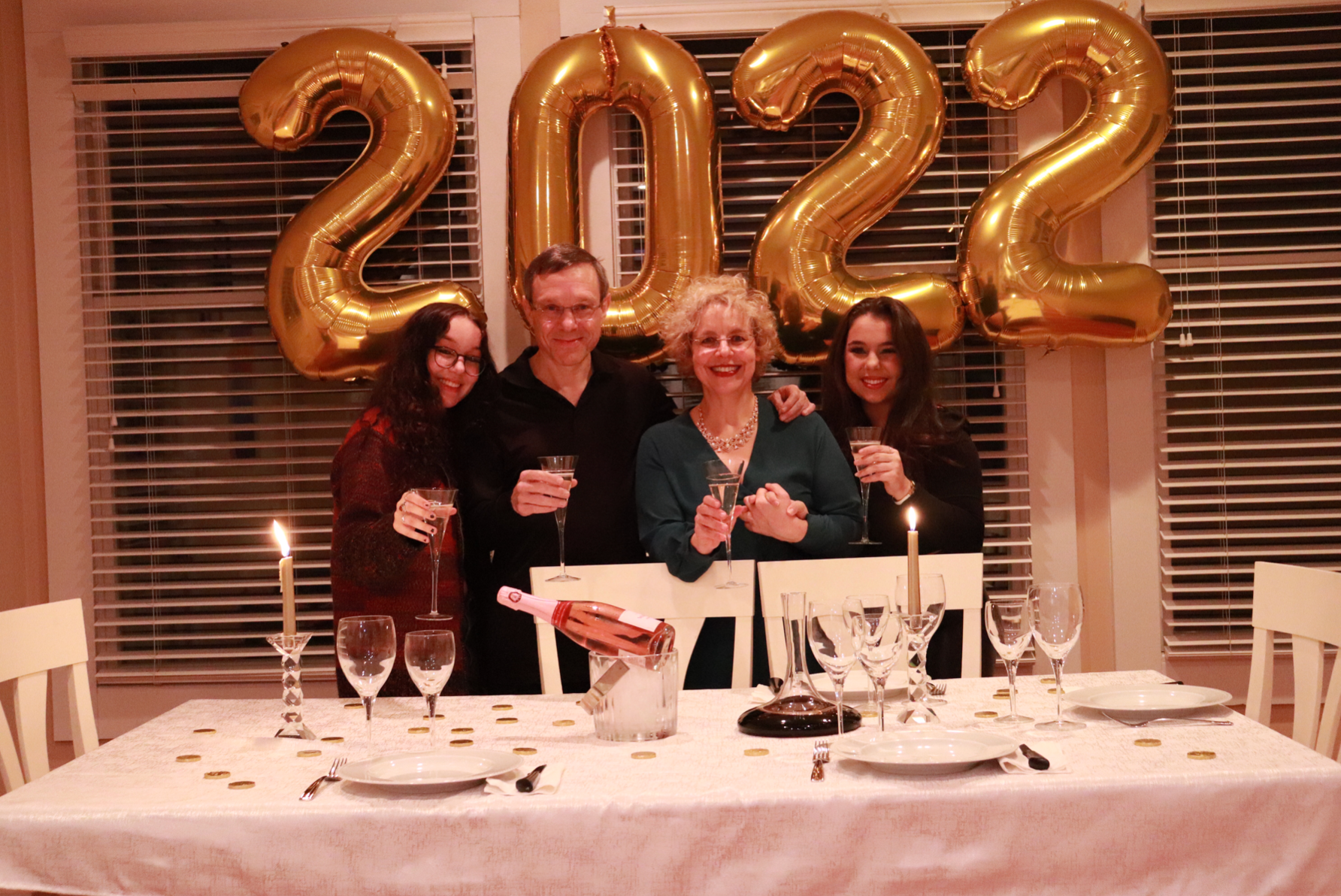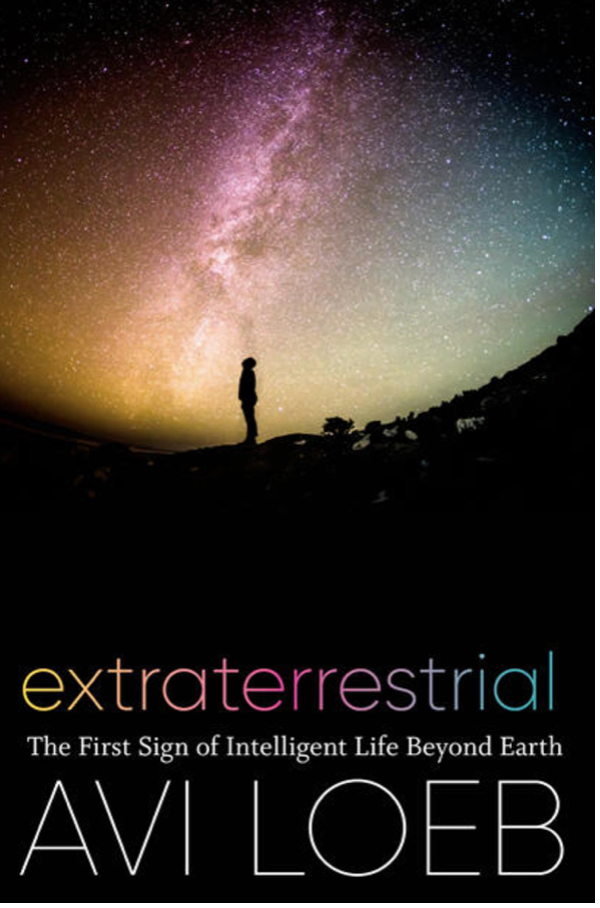
One of Avi Loeb’s most vivid childhood memories is sitting at the family dinner table at his family farm in Israel asking “difficult” questions about the mysteries of the universe.
As he recalls, the adults would either pretend to know the answer or dismiss the question when they didn’t.
Now 60, the longest serving chair of Harvard’s Department of Astronomy tells The Independent that a deep intellectual rot has set in in academia that has left many of his contemporaries behaving like the unquestioning know-it-alls who tried to silence him as a kid.
“I thought that by becoming a scientist, I would be surrounded by like-minded people that want to find the answers to questions based on collecting evidence and trying to figure it out, you know, like a detective. And, unfortunately, that’s not the reality right now.”
Prof Loeb is a prolific writer, and has long espoused strong beliefs on speculative ideas in theoretical physics - on subjects like black holes and the possibility that life can shift from one planet to another.
But it was only when he turned his focus to investigating the existence of alien life that he became truly controversial. For him it always seemed obvious that aliens not only existed, but had already visited Earth. To think otherwise would be the height of human arrogance.
He explains: “We know the Earth is not unique, it’s very common, and about half of the sun-like stars have a planet the size of the Earth, roughly the same distance. And most stars from billions of years before the sun. So all I’m saying is just use common sense. Okay? The conditions here on Earth, were replicated, you know, tens of billions of times in the Milky Way galaxy alone, and the trillion galaxies like it in the universe, how can you claim that your privilege if your neighborhood is reproduced in so many other places?”
It was the publication of his bestselling 2021 book Extraterrestrial: The First Sign of Intelligent Life Beyond Earth that set him at odds with the scientific establishment.

Extraterrestrial’s central claim is that a pancake-shaped space rock about the size of a football field dubbed ‘Oumuamua’ - Hawaiian for scout, which was only visible to scientists for 11 days in 2017 - was an interstellar technology built by aliens.
The origins of ‘Oumuamua remains a fiercely debated topic among scientists: some concluded it might be made of solid hydrogen, others believed it was a comet that was propelled out of its native solar system, a cloud of loosely-bound dust particles, or an iceberg made out of nitrogen.
Prof Loeb’s studies concluded it was not an asteroid or a comet; it was moving too fast along a strange orbit, it tumbled rather than spun, and left no trail of gas or debris in its wake.
‘Oumuamua’s extreme dimensions (400 meters long and perhaps 10 times as long as it is wide), perplexing brightness, sail-like movements, and dramatic acceleration to 196,000 miles per hour (87kms per second) as it left the solar system convinced Prof Loeb it was mankind’s first confirmed sighting of intelligent extraterrestrial life.
He had long believed it was only a matter of time before we encountered aliens, so why not give this indefinable object the benefit of the doubt?
Prof Loeb is scathing of the broader scientific community’s consensus that we may never know what it was.
He describes his fellow astronomers’ attempts to explain Oumuamua as like a caveman finding a smartphone. If a neanderthal had discovered an iPhone13 he probably would have believed it to be a strange rock.
“But of course there is a way to find out, the cave dweller could press a few buttons and work out that this object records your voice, and that it was not a rock, but something else.
“But you need to be open-minded for that, you need to be willing to collect evidence that may surprise you. I don’t mind being attacked personally just because people are not willing to entertain that.”

Extraterrestrial became a media sensation, and Prof Loeb says more than 30 filmmakers got in touch with him wanting to develop the book into a film. He is currently working on a documentary with the producers of the 2016 film Arrival.
Prof Loeb estimates he has conducted more than 2,000 interviews in the past year.
He sees communication with the lay public as more important than discussing ideas in the closed science world, saying he’s had to develop “titanium skin” to shield from the criticism.
He often tells the story of Galileo Galilei, who after discovering that the Earth revolves around the sun four centuries ago spent the last 10 years of his life under house arrest.
“Today, they would have canceled him on social media,” Prof Loeb tells The Independent, adding he doesn’t have any accounts.
The enormous interest in the book and endless fascination with unidentified aerial phenomena saw him step down after three terms as the head of astronomy at Harvard and launch a new endeavour to search for extraterrestrial life, the Galileo Project.
Prof Loeb says the aim of the project is to build a series of telescopes that will use infra-red and visible light cameras, radio and audio sensors, to scour the night sky for objects that are not natural or manmade, and use artificial intelligence to analyse them.
Its first telescope is being constructed on the roof of the Harvard College Observatory, and Prof Loeb hopes it will eventually link with many others around the world.
Unlike the information held on unidentified aerial phenomena (UAPs) by the US Government, all of the data collected from the project will be shared with the public.
Last year the US intelligence community released a long-awaited report on what it knows about a series of mysterious flying objects that have been seen moving through restricted military airspace over the last several decades.
The results were disappointing: the Government admitted it knew very little, and had not confirmed any of the unexplained sightings as being extraterrestrial.
It is establishing a new office - the Airborne Object Identification and Management Synchronization Group to document and analyse reports of encounters with unidentified objects – Unidentified Aerial Phenomena or UAPs – predominantly from military pilots.
Prof Loeb hasn’t seen any of the classified information held by US authorities, and neither does he want to, as it could inhibit his ability to share what he discovers freely.
“You know, if we find that all these unidentified objects have mundane explanations, for example they are birds, drones, weather balloons, airplanes, or satellites, that would be fine.
“I think that’s also an important service to the community, because we are clarifying that there is nothing unusual after checking it carefully.”

The secrecy around what the US Government knows means it can’t be analysed properly, or subject to peer review.
“So there is suspicion that maybe the government knows much more than he does. And I don’t have any insight about that. But then the public speculate and the scientific community ridicules the subject. That’s not a healthy situation.”
Prof Loeb has $2m confirmed funding for the project from a philanthropic group of supporters, and says he needs $100m to fully realise his dream.
The figure is only two percent of the $5bn budget of the Large Hadron Collider, and a tiny fraction of Elon Musk’s Space X project, which is valued at around $100bn.

He tells The Independent that the funding constraints holding back extraterrestrial research make even less sense than the lack of progress on climate change.
“With climate change, we understand that fossil fuel industries entangled with politics are preventing us from moving in the right direction quickly enough.
“But in the context of extraterrestrials, it’s not that because there is no commercial benefit, and there is no political reason as far as I can see to suppress our knowledge.
“I think it’s mostly that humans naturally prefer to flatter their ego. We prefer to believe that we are the centre of the world, that we are the smartest, there is nothing else.
“This is really crazy, you know.”
Avi Loeb grew up collecting eggs, riding tractors and reading philosophy in the hills around his family farm in Beit Hanah, central Israel.
Born 14 years after the formation of the Jewish state, he was conscripted into the Israeli Defence Force and joined its advanced academic programme, gaining a PhD in plasma physics from the Hebrew University of Jerusalem aged 24.
He admits he might have returned to the family farm if it wasn’t for an offer in 1983 to join Ronald Reagan’s Strategic Defense Initiative - more commonly referred to as the Star Wars programme - a missile defence system designed to protect the United States from a ballistic nuclear attack.
He went on to join Princeton University where he began working in theoretical astrophysics, and moved to Harvard in 1993, where he has been tenured for the past 25 years.
He lives in Lexington, Massachusetts, with his wife Ofrit Liviatan, and daughters Lotem and Klil.
At Harvard, he says he encountered a hint of the elitism in the student body that he has seen in academia.

“I tell students in my class at Harvard, that half of you are below the median of the class. You know, that’s the way the median is defined, that half of the class in any class is below the median.
“And of course, they have a hard time accepting that. We humans have this tendency to think that we’re special, unique, privileged, and so forth. A lot of what we do in life is driven by our ego, you know, trying to prove that we are better than the other person, we are superior to that.”
It’s not lost on Prof Loeb that while he wants to communicate with interplanetary beings, back on Earth, humankind seems to be finding it harder to communicate with one another.
“Human history is very often driven by a group of people feeling superior to another group of people. If we find that we are not the smartest kid on the cosmic block, it will give us a different perspective. All the differences between humans will become irrelevant.”
Prof Loeb believes he will find proof of extraterrestrial life in his lifetime.
“The reason I look for intelligence in space is because it’s hard to find on Earth.”







